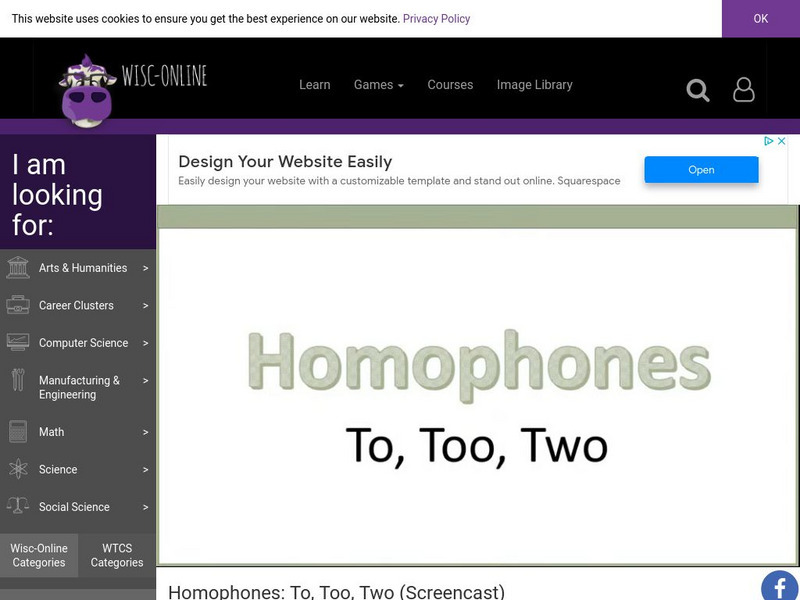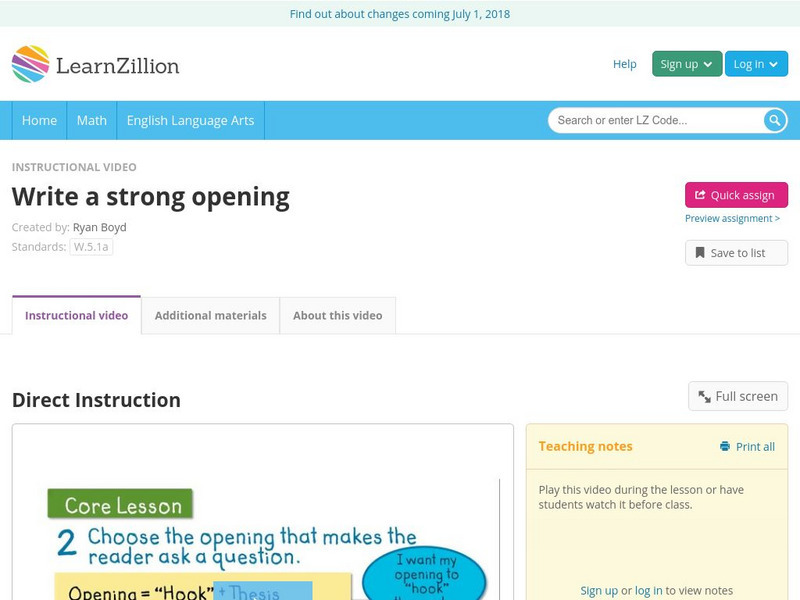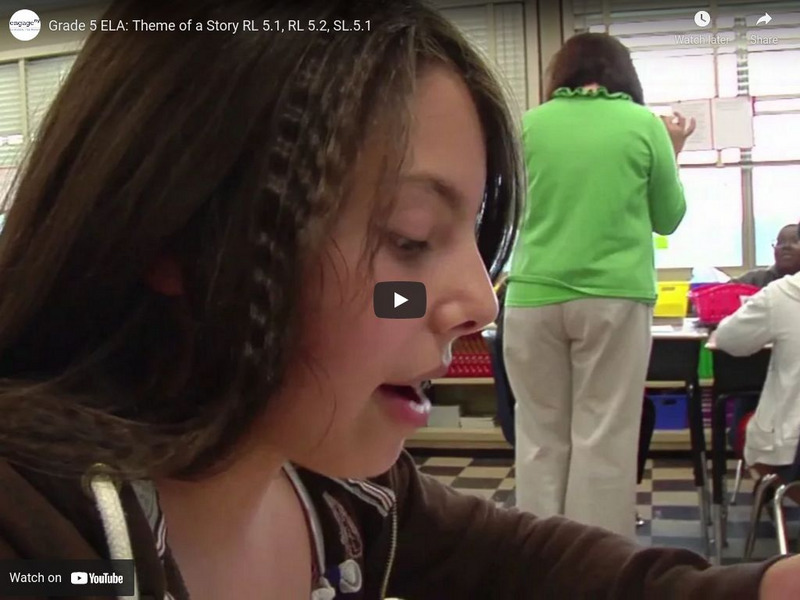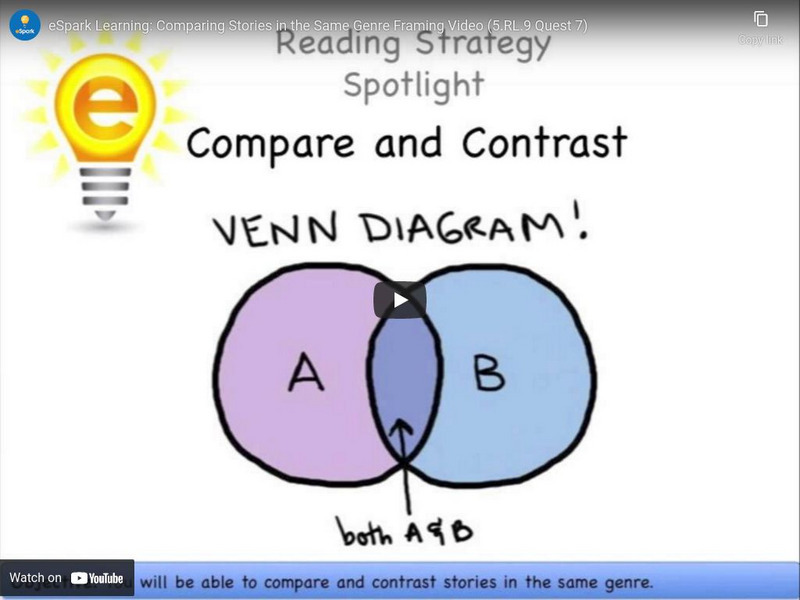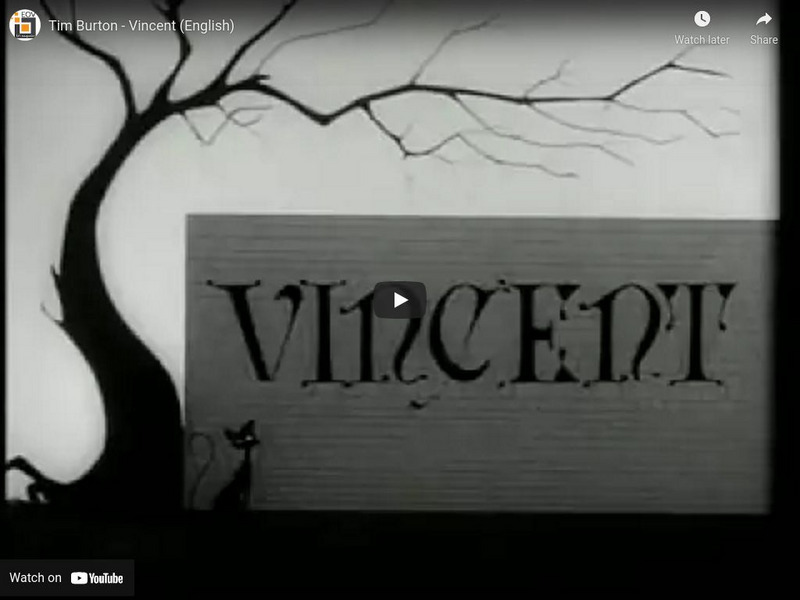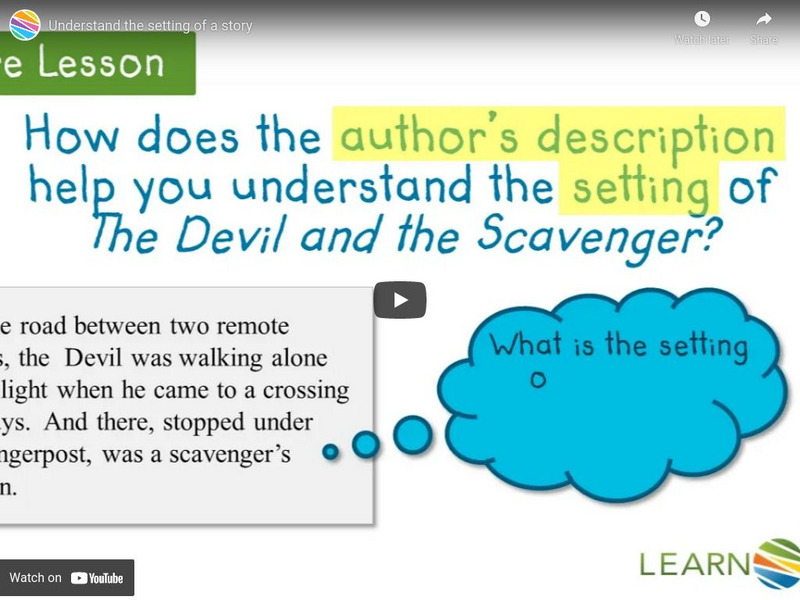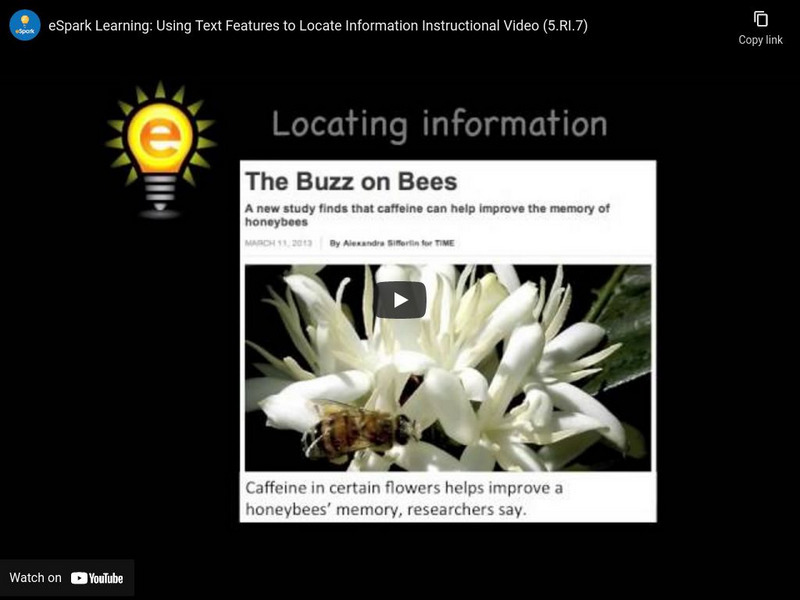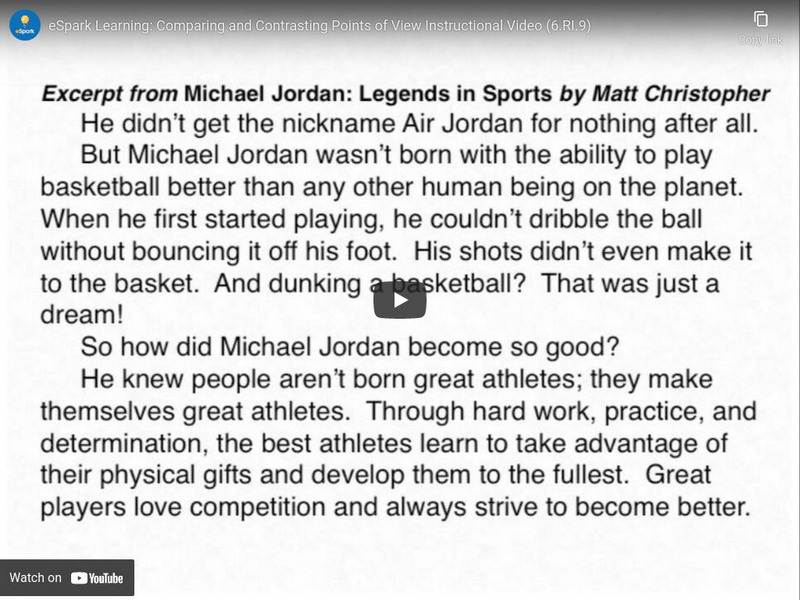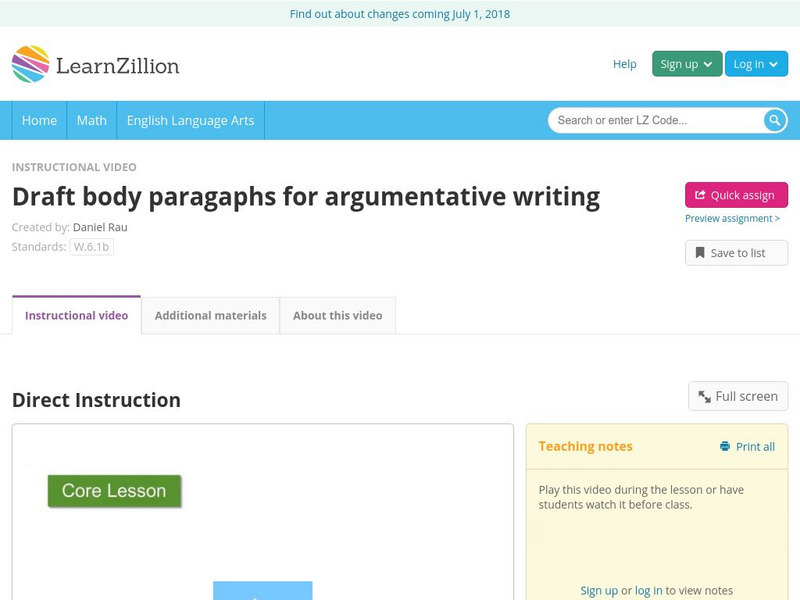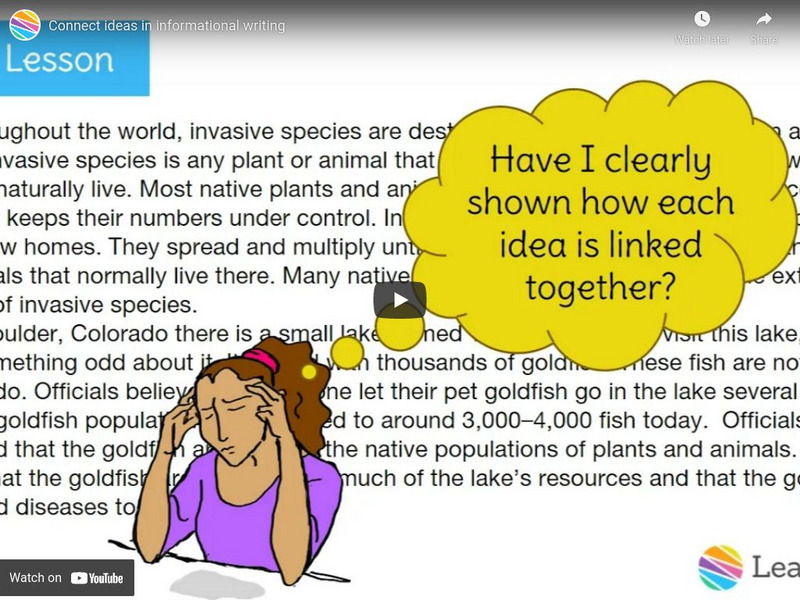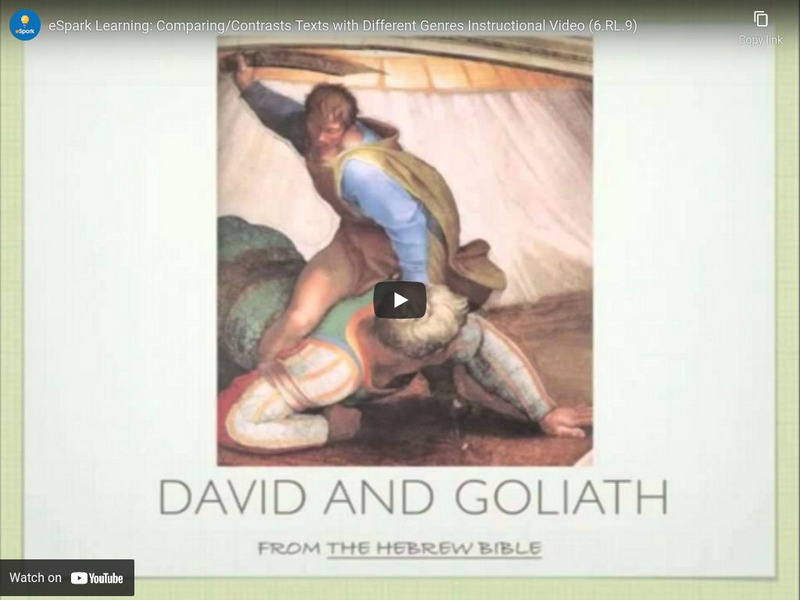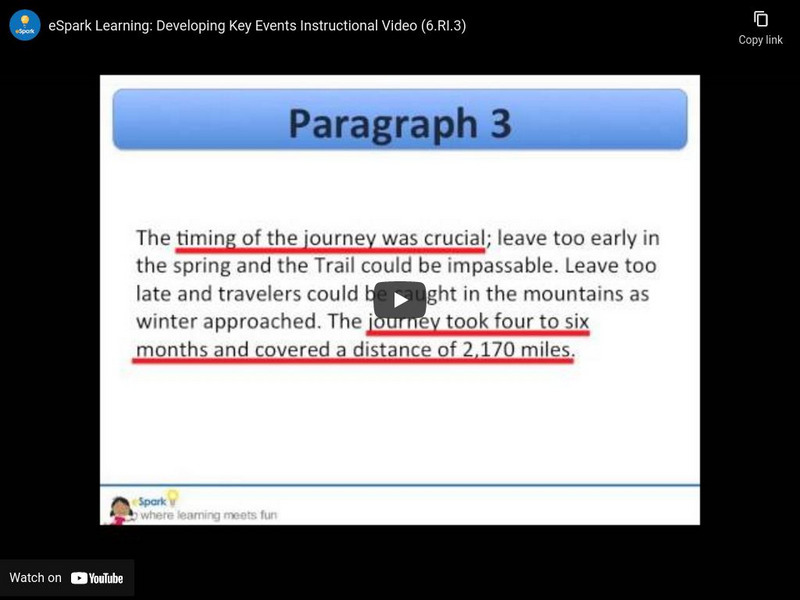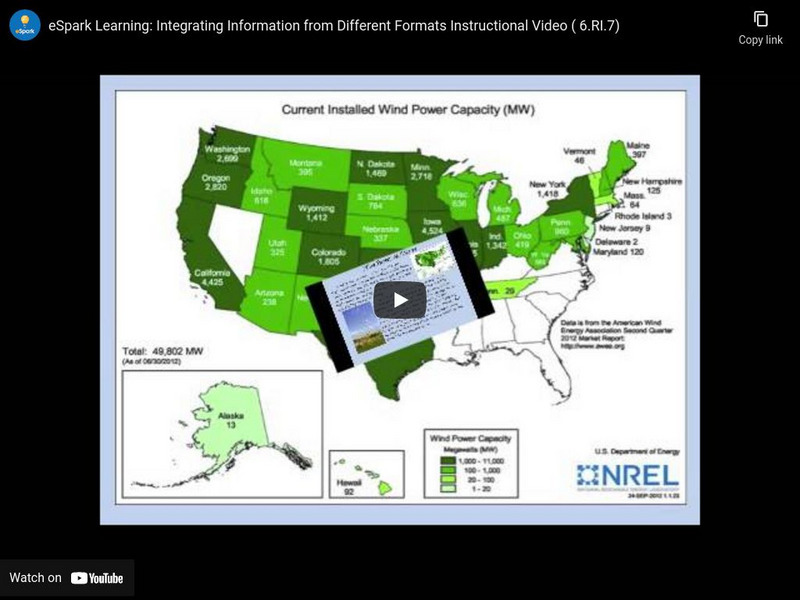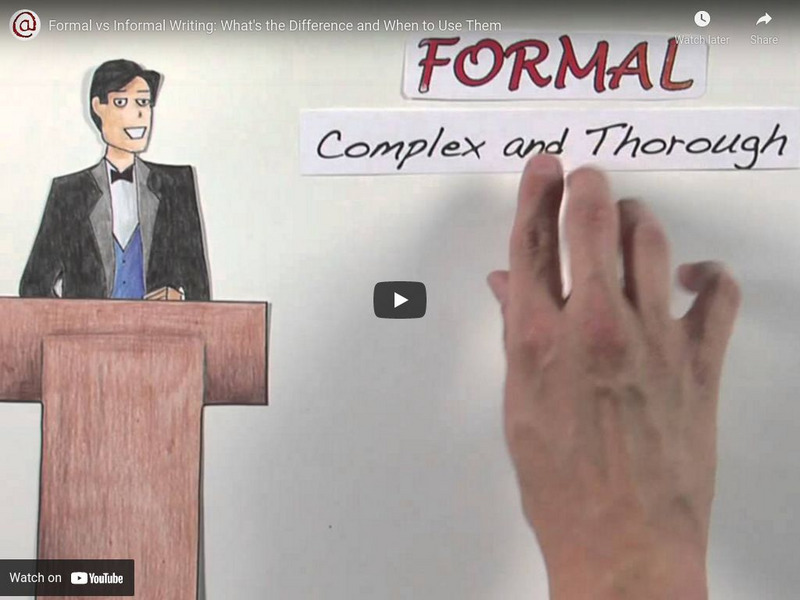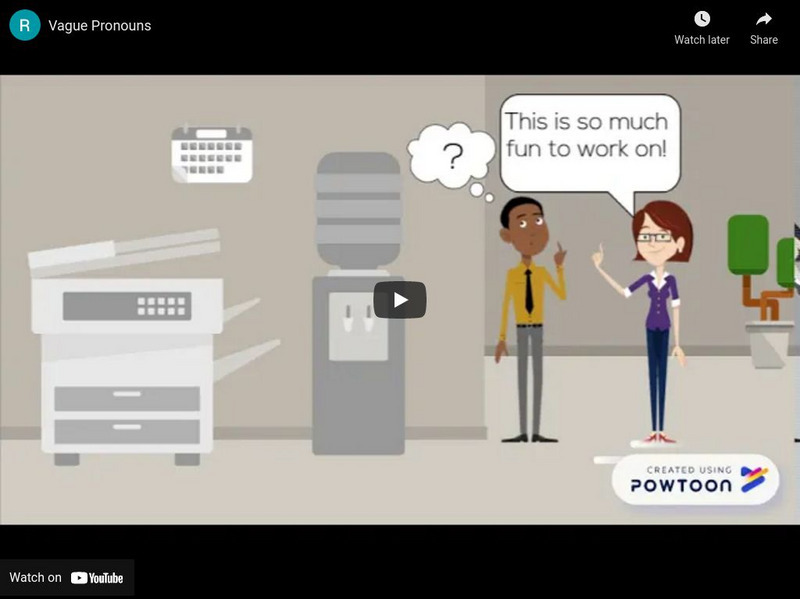Hi, what do you want to do?
Wisc-Online
Wisc Online: Homophones: To, Too, Two
This video focuses on the definition and proper usage for the homophones to, too, and two. [2:35]
Imagine Learning Classroom
Learn Zillion: Develop Support for an Argument in Opinion Writing
In this lesson, you will learn how to support your argument by turning the topic sentence into a question. [4:51]
Imagine Learning Classroom
Learn Zillion: Write a Strong Opening
In this lesson, you will learn how to pull in the reader by writing a strong opening and thesis. [5:31]
Imagine Learning Classroom
Learn Zillion: Write a First Draft of an Informational Text
In this lesson, you will learn how to write the first draft of your essay by using the boxes and bullets outline as your guide. [4:56]
EngageNY
Engage Ny: Grade 5 Ela: Theme of a Story Rl 5.1, Rl 5.2, Sl.5.1
In this teacher-modeled lesson with a fifth-grade class, students are guided in how to find text evidence that demonstrates the challenges the main character is facing, how to relate those challenges to the themes in the story, and how...
eSpark Learning
E Spark Learning: Comparing Stories in the Same Genre Framing Video (5.Rl.9)
Explains how to compare stories within the same genre for their similarities and differences and how this skill will benefit one as a reader. This video introduces a followup activity where students would compare two fables and two...
Other
Tim Burton: Vincent
This video is made by producer Tim Burton. It animates a poem about a young boy who imagines he is Vincent Price. There are also a few references to Edgar Alan Poe. Narrated by Vincent Price. This video can be used to stimulate...
Imagine Learning Classroom
Learn Zillion: Understand the Setting of a Story
In this lesson, you will learn how to understand the setting of a story by analyzing the visual elements included in the author's descriptions. Registration gives access to a slideshow and a student handout. [6:24]
Imagine Learning Classroom
Learn Zillion: Make an Inference and Verify It With Direct Quotes
In this lesson, you will learn how to make an inference and verify it by quoting directly from the text. Registration gives access to a slideshow and a news article as well. [6:57]
McGraw Hill
Mc Graw Hill: Introduction to Reading Skills: Claims and Support
This engaging video highlights the importance of providing reasons and evidence to support a claim. [2:41]
McGraw Hill
Mc Graw Hill: Introduction to Reading Skills: Claims and Supporting Evidence 2
This video highlights the importance of supporting claims with evidence. [2:35]
eSpark Learning
E Spark Learning: Using Text Features to Locate Information (Ri.5.7)
This video explains how to find the central idea and identify text features in print or digital nonfiction text. It uses several engaging articles as examples including one about a machine that splits Oreo cookies. [7:42]
eSpark Learning
E Spark Learning: Comparing and Contrasting Points of View, Ri.5.9, Ri.6.9
This video compares and contrasts excerpts from a biography and the autobiography of Michael Jordan. After the instructor reads aloud both texts, she explains a Venn diagram that shows similarities and differences between the two...
Imagine Learning Classroom
Learn Zillion: Draft Body Paragaphs for Argumentative Writing
In this lesson, you will learn how to draft body paragraphs for an argumentative essay by introducing evidence and explaining how it supports your thesis. [4:56]
Imagine Learning Classroom
Learn Zillion: Connect Ideas in Informational Writing
In this lesson, students practice revising a draft about invasive species with a focus on using transitions to connect ideas across and within paragraphs. A video models the thought process writers use to apply the targeted skill and...
Imagine Learning Classroom
Learn Zillion: Use a Comma to Set Off a Tag Question From the Rest of a Sentence
In this lesson, students practice editing a draft about using a comma to set off a tag question from the rest of the sentence. A video models the thought process writers use to apply the targeted skill and improve their draft. The video...
eSpark Learning
E Spark Learning: Comparing and Contrasting Reading Experience
In this lesson, a text and video version of the same story are compared and contrasted. [5:15]
eSpark Learning
E Spark Learning: Comparing/contrasting Texts With Different Genres (Rl.6..9)
Explains what a genre is, the different types, and how to look past the genre to find similarities and differences. A chart is displayed that asks students to compare the characters, setting, plot, and theme or message in the Bible story...
eSpark Learning
E Spark Learning: Developing Key Events Instructional Video (6.Ri.3)
In this video, students are guided through an analysis of a piece of informational text about travelers on the Oregon Trail. The instructor shows how to use a graphic organizer to sequence the events and see how the main event, westward...
eSpark Learning
E Spark Learning: Integrating Information From Different Formats (Ri.6.7)
This video discusses how to use nonfiction text features to better understand what is being read. [4:19]
Other
Seneca College (Canada): Seneca Libraries: Integrating Research Into Your Paper
This video demonstrates how to properly integrate material you find in articles and books into your paper. [2:26]
Other
Ezine: Formal vs Informal Writing: What's the Difference and When to Use Them
Before you start writing any article, one of the first things you need to ask yourself is "Who's my audience?" Answering this question will help you decide if you should use a formal writing style or an informal writing style. [2:52]
Other
Royal Roads University: Writing Centre: Vague Pronouns
An animated video that explains what we mean by vague pronouns where the connection between the antecedent and the pronoun is unclear. It demonstrates how to analyze a sentence in order to diagnose errors. [2:43]
Imagine Learning Classroom
Learn Zillion: Write an Argument for a Thesis Statement
In this lesson, you will learn how to write the argument for a thesis statement by turning the purpose statement into a claim. [3:52]





